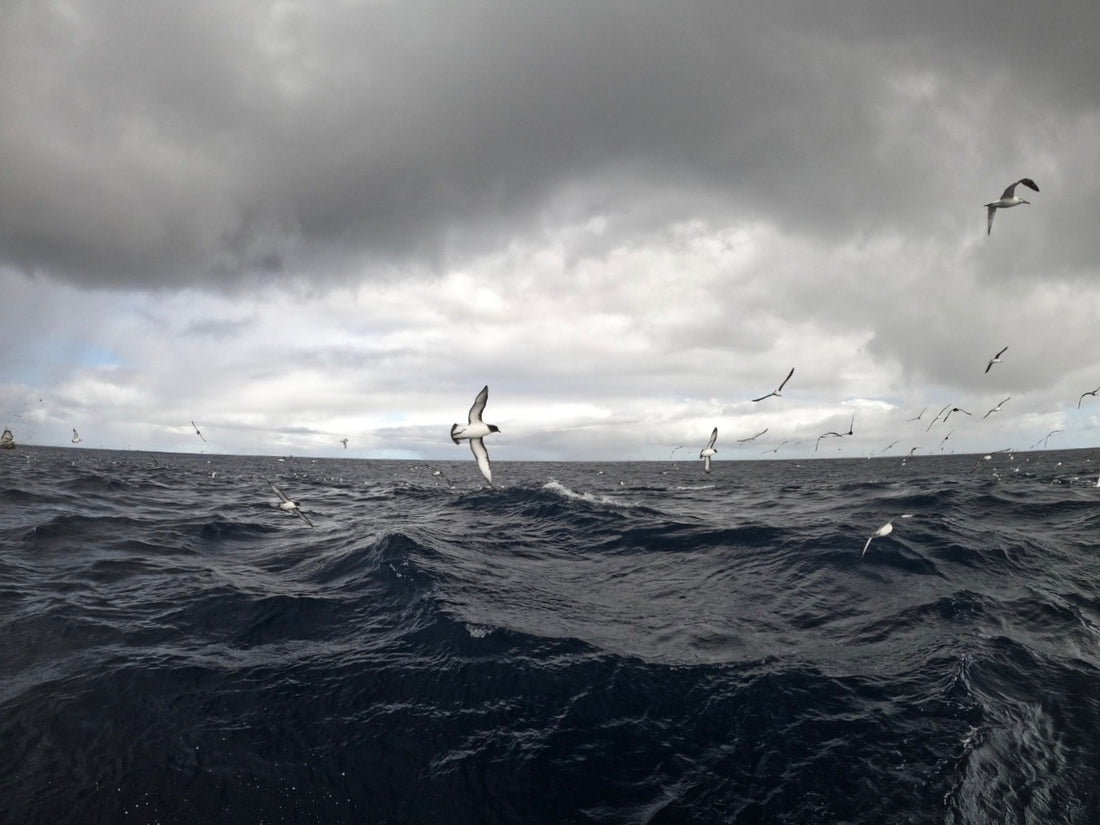
Sale of "Red Listed" fish is legal and why.
Share
In a world that is evolving at a pace none of us have ever been exposed to before, where words like “the new normal” exist, and social behaviours and opinions are changing like the tides, we should try to take a minute to remember our roots and where we have come from.
“We are not all in the same boat. We are in the same storm. Some have yachts, some canoes, and some are just drowning. Just be kind and help whoever you can.”
Growing up on the West coast, bouncing between boats and harbours around the peninsula from Lamberts Bay, St Helena Bay, Hout Bay, Cape Point, Gaansbaai, Struisbaai, Arniston and Stillbaai to name but a few, I was very fortunate to grow up in a traditional community based fishing culture - one of early mornings, late nights and hard work. Handline fishing is not an easy occupation; many simply sink away and fall victim to mass fishing operations where economies of scale simply strip away the fair trade and small profits that once existed.
Starting on fishing boats as a crew member and working my way through the ranks to skipper, I was exposed to many facets of the fishing life. I saw opportunity in some value adding to our catch and started Greenfish from my driveway. I was fortunate enough to interact with many of the traditional line fisherman on the West Coast, Struisbaai and the tuna pole fishermen in Cape Town that as a youngster I grew up fishing with - I had relationships and trust already. Apart from some of the linefish, tuna and west coast rock lobster (ring net) we catch ourselves, this is the foundation of our business. This strong connection with the fisherman, and hands on approach is where our fish comes from.
We embrace who we are, where we come from and see it as a responsibility to give back to the communities that embraced me as a youngster and enabled Greenfish to get where we are today. We firstly support fish that are caught by traditional artisanal hand line fishermen and pole over other methods (second choice). Hand line/ Pole fishing, ring net catching of West Coast Rock lobster, one line and one hook per fisherman has many limitations. These rights holders get very few days a year to fish due to weather, seasonal and social economic constraints. This method of catch is very selective and has little to no damage on sea birds and other marine mammals. We are in support of these methods of harvest provided it is within the limitations of the law set out by the MRLA (Marine and Living Resources Act). It is this artisanal style of fishing that we support over other methods.
These hard working fishermen stick to the rules, and catch very small percentages of the total harvest from the sea in South Africa, yet often get painted with the same brush. SASSI is an NGO, an awareness campaign that promotes awareness to consumers to help them make more educated choices about the seafood they consume. They too have evolved since the first lists they generated many years ago, to some of the new list now that are separating catch methods on some fish, and where and how they have been caught. Not all fish caught are equal. A silver fish caught by a traditional hand line fisherman would have a smaller marine impact than the same silver fish caught by a inshore trawler that could damage the seabed or have unwanted by-catch. I hope in the future SASSI will continue this great work of identifying catch methods to all species and even the crayfish caught by the communities up the west coast.
While we are aware that some of the species we sell may fall on the SASSI red list, we strongly believe that all the fish must legally caught and within legislation, and be traceable back to their origin of catch and method (some species that fall on the SASSI red list are legal to catch, buy and sell). In these cases we support the catch method over their species listing.
Greenfish has interaction with SASSI as a voluntary participant and attend their workshops annually. We have worked closely with them to develop a sustainability policy and interact with them when we have questions or concerns about some catches. We are also members of the IPNLF http://ipnlf.org/who-we-are/members/green-fish and have been working closely with St Helena Island to get more Pole caught tuna into South Africa in times of shortage to phase out other catch methods http://www.sainthelena.gov.sh/st-helenas-first-fresh-tuna-export-a-success/ . We are in important team member with the transportation of rescued sea turtles at the Two Oceans Aquariums turtle rescue project and have been plant trees in fishing communities with https://greenpop.org/about-us/ to assist in offsetting some of our carbon footprint. Where possible on our imports we get MSC approved products (for example, our scallops).
There is no “green stamp” or accreditation one can get in SA that can set you apart from the rest. So our interpretation lies in our actions and ethos. We believe that every small action does make a difference and the support of community based small scale fishermen. The ultimate power for change lies within the consumer’s hands who drive the demand.
There is no book, or list of “how to” do fish and seafood like we do, it’s simply a matter of learning and exposing ourselves to this over many decades and doing what we believe in each day and knowing that we can all make a positive diffence with the things we do.
